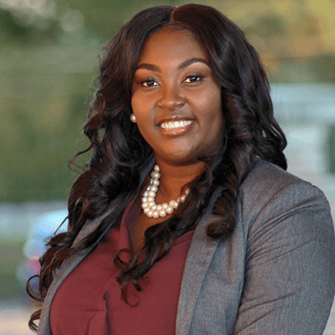How Many Credit Cards Should I Have?

How many credit cards are in your wallet? A cash-back rewards card? An airline advantage card? A retail card from your favorite store?
At some point you have to wonder: How many is too many?
Credit cards are a way of life. They’re convenient and can be used to finance big purchases. But be careful. Use them wrong and your credit could take a hit.
There’s no single right answer to how many credit cards you should have. However, some guidelines can help you decide if you’re above — or maybe below — a healthy number for your unique financial situation.
Here are four ways that a credit card can affect your credit score. Be sure to consider them before opening or closing an account.
Payment history
Payment history has the biggest impact on your credit score. (It accounts for 35% of your FICO score.) Missed payments are considered red flags to lenders, while a consistent track record of on-time payments will give you a boost.
Having too many credit cards can make it hard to keep track of payments. And when you miss a payment, it doesn’t matter if you made an honest mistake. It will be added to your credit report and count against you.
If you miss payments because you have more credit cards, consider closing an account. Be sure to pay the minimum amount due on time, every time. (Scheduling automatic payments can help.) To avoid interest, pay the balance in full every month.
Credit history length
How long you’ve held a credit card is one factor that can impact your credit score. Typically, the longer you’ve had one, the better your score.
The length of your credit history accounts for 15% of your FICO score. So while it may seem good to have fewer cards, that’s not always the case. If you cancel a credit card you’ve had for a long time, you risk shortening your credit history and lowering your score. If you delay opening an account, you lose out on the chance to start building your credit history length.
However, opening a new account will probably cause a temporary dip too. This is because FICO uses three factors to calculate your credit history length: the age of your oldest account, the age of your newest account, and the average age of all your accounts. A new card will lower the age of your most recent account and the average of all your accounts. This will reduce your credit history length.
So, when you consider your credit history length, be sure to keep a few things in mind:
- A new credit card will likely cause a temporary dip in your score.
- Closing an old account may also cause a dip.
- Delaying getting your first credit card can reduce your score.
Credit utilization
Your outstanding debt makes up 30% of your FICO score. The total amount you owe is one part of this, but what’s more important is something called your credit utilization rate.
Your credit utilization rate is how much of your credit you’re using. It’s expressed as the percentage of your total available credit. For instance, if you have a credit card with a $10,000 limit and your balance is $1,000, your credit utilization rate is 10% because you’re using 10% of your available credit.
A high credit utilization rate can lower your score, and experts generally recommend staying below 30% to avoid taking a hit. A low credit utilization rate, on the other hand, can boost it.
One potential consequence of closing a credit card is a higher credit utilization rate. To avoid this, make sure that you pay off all other credit card accounts and drop your rate into a healthy zone. And if your credit utilization rate is too high, one way to lower it is to open a new account.
When closing or opening an account, consider how it will impact your credit utilization:
- Will closing an account increase your credit utilization rate to an unhealthy level?
- Will opening an account decrease your credit utilization rate to a healthy level?
New credit
Eager to add to your credit card collection? Ready to upgrade to a better rewards program? Not so fast. Opening a new credit card will likely cause a dip in your credit score.
When applying for a new account, the credit card company will check your credit by conducting something called a “hard inquiry.” This will be recorded on your credit report and likely cause a small drop in your score. Too many inquiries in a short period of time can be especially damaging unless you’re rate shopping.
“New credit” accounts for 10% of your FICO score. Before applying for a new account, ask yourself a couple questions:
Are you comfortable lowering your credit score for a short period?
Do you expect to apply for credit multiple times or only once?
Other factors to consider
In addition to the impact on your credit score, be sure to consider other benefits — or risks — that credit cards might offer.
For instance, a credit card might offer cash-back, flight miles, or a retail discount. Jasmine Young, the founder and CEO of Southern Tax Preparation & Services, said credit card holders should use these perks to their advantage.
“While there isn’t an ideal number of credit cards to have … one should be sure that cards have low APRs and offer some type of incentive,” she said.
Bottom line
There isn’t a right number of credit cards. What’s more important is how your credit cards contribute to your credit score. Be sure to consider their impact before opening or closing an account.

Jasmine S. Young is the founder and CEO of Southern Tax Preparation & Services, LLC, an accounting firm she established in 2014 in efforts to spread financial literacy around the globe. A certified public accountant and a certified fraud examiner, she has over five years of experience providing clients, both individuals and businesses, with tax, bookkeeping, financial consulting, credit counseling, and various other accounting solutions. Young also has almost 10 years of experience in government accounting having served as an auditor for three different government agencies.





